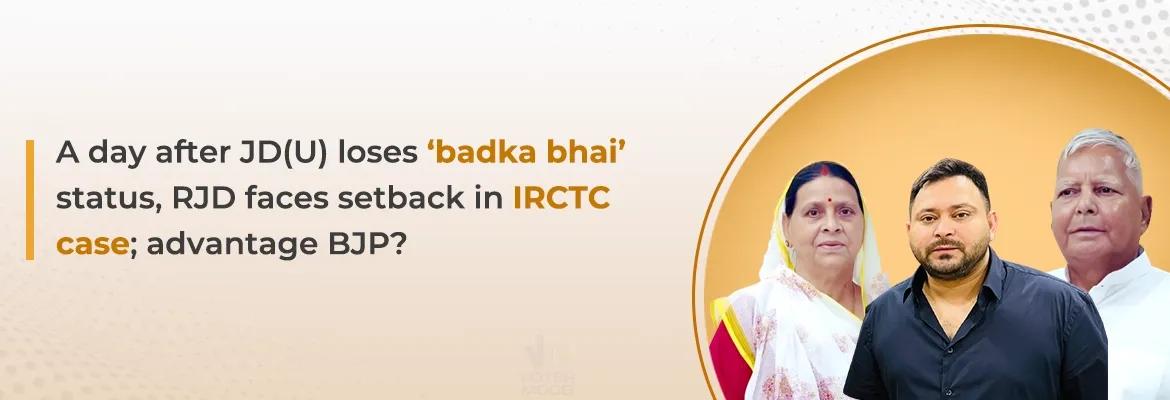A day after JD(U) loses ‘badka bhai’ status, RJD faces setback in IRCTC case; advantage BJP?

Janata Dal (United) traditionally played the role of the elder brother in the NDA alliance in Bihar. However, in recent years, the Bharatiya Janata Party (BJP) has grown increasingly assertive. During seat-sharing talks for the upcoming Bihar assembly elections, it was expected that the BJP would dominate the discussions.
Perhaps sensing this shift, JD(U) had initially demanded that even if the number of seats differed by only one, it should still contest more seats to retain its symbolic seniority. However, the BJP secured an equal number of seats, making it clear that it no longer considers itself the ‘younger brother’ in the alliance.
Importantly, this also hints at the possibility that if the NDA returns to power, the Chief Minister may come from the BJP.
Equal seats, unequal power: BJP’s political messaging
The NDA has finalised its seat-sharing agreement for the 2025 Bihar Assembly elections. Both BJP and JD(U) will contest 101 seats each, indicating a strategic parity on paper. But beneath the surface, the message is clear: the BJP is asserting itself as the central force in the alliance.
This is a significant departure from previous arrangements where JD(U), under Nitish Kumar’s leadership, enjoyed a larger share and often dictated terms. The equal seat-sharing signals not just electoral balance but a shift in leadership dynamics. It positions the BJP as a strong contender for the Chief Minister’s post if the alliance secures a majority.
Allies get their share
Smaller alliance partners have also been given space in the coalition:
- Lok Janshakti Party (Ram Vilas), led by Chirag Paswan, will contest 29 seats.
- Hindustani Awam Morcha (HAM), led by Jitan Ram Manjhi, has been allocated 6 seats.
- Rashtriya Lok Morcha (RLM), under Upendra Kushwaha, also gets 6 seats.
These allocations are crucial for micro-level caste equations and regional influence. While their numbers are relatively small, these parties can significantly influence outcomes in tightly contested constituencies. However, the BJP remains the anchor around which the alliance revolves.
The Chirag factor: 2020’s disruptive player returns to the fold
In 2020, Chirag Paswan had exited the NDA and contested 135 seats independently, positioning himself against JD(U). Though he won only one seat, his party significantly damaged JD(U)’s prospects, causing them to lose over 30 constituencies where the vote split helped opposition candidates.
Now, with Chirag back in the NDA fold and contesting only 29 seats, the alliance aims to prevent a repeat of 2020’s internal sabotage. The consolidation of allies reflects the BJP’s intent to minimize friction and maximize vote consolidation.
Trouble for Mahagathbandhan: IRCTC Case Weakens Its Offensive
In a significant setback, a court has framed charges in the IRCTC scam case against Lalu Prasad Yadav, Rabri Devi, and Tejashwi Yadav. This development not only tarnishes the RJD leadership's image but also undercuts their ability to attack the NDA on the issue of corruption.
With corruption being a sensitive electoral issue, this case weakens the moral standing of the Mahagathbandhan, especially when they were positioning themselves as an ethical alternative to the ruling alliance. It may impact the voter perception of Tejashwi Yadav, who had been emerging as the face of the opposition.


